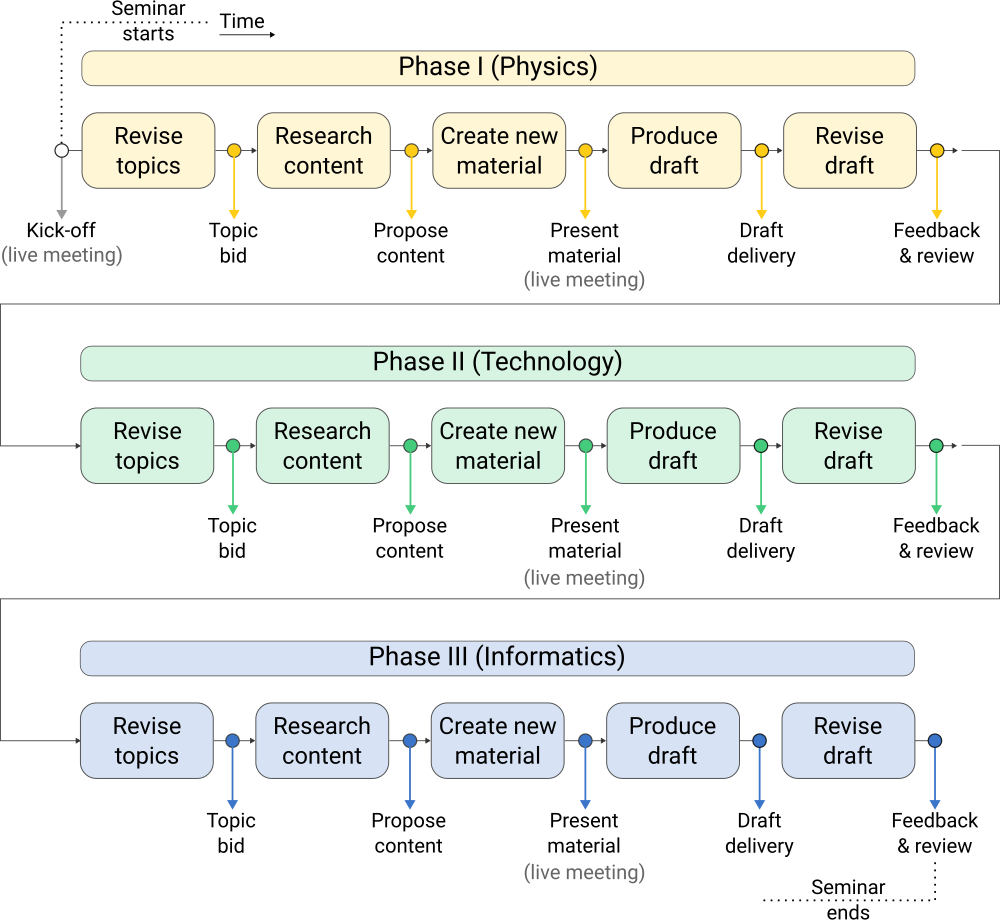News
Currently, no news are available
Space Informatics

Overview
Context: Emerging satellite mega-constellations in low-Earth orbit and scheduled interplanetary missions are no longer aerospace-specific topics. Modern space systems are deeply rooted in recent advances in computer power and miniaturization to massively increase their scale, complexity, and autonomy. This poses unprecedented challenges to the informatics domain, where state-of-the-art algorithms and techniques spanning optimization, verification, and machine learning need to be applied and adapted to the space context.
Seminar: We will approach the contents of Space Informatics in three phases: 1) Physics, 2) Technology, and 3) Informatics. Students will work on reports of assigned topics in the form of a book chapter, including sample exercises, with support from the instructor. Topics will be evaluated by other seminar students. The seminar will run in full virtual mode. Periodic synchronous Zoom encounters and asynchronous interactions via Discord will be leveraged.
Structure
For each phase (I-III) the following activities will be pursued.
- Revise topics corresponding to the current phase (see Topics below). One topic will be assigned to each student (In most cases students will have a single topic, but harder topics might have two students.)
- Outcome: Bid for a topic (provide 3 preferred options directly to the instructor)
- Research content to extend and/or improve the clarity of the presentation of the assigned topic (leveraging papers, books, and online resources to be provided by/consulted with the instructor).
- Outcome: Propose new content (provide a high-level outline for the instructor to approve)
- Create new material or update existing one based on the new content (including images, tables, text, guides, examples, and exercises - to be consulted with the instructor).
- Outcome: Present new/updated material (15 minutes of live presentation and q&a with all students) [30% of the final grade, compulsory]
- Produce a draft of a book chapter for the assigned topic including the old and new material and new (solved) exercises or multiple choice questions for self-evaluation (~5k words without references plus at least 2 solved exercises or 5 multiple choices).
- Outcome: Deliver the draft for others to review (directly to the instructor who will distribute the draft for review to other students) [50% of the final grade, compulsory]
- Revise the draft produced by another student and provide constructive feedback and suggested changes.
- Outcome: Share feedback and apply changes from provided feedback (deliver final version to instructor) [20% of the final grade, compulsory]
Note: Chapters will be developed, delivered, and reviewed in markdown format in assigned Git(lab) repositories. Optionally, Jupyter notebooks can be created to offer interactive equations and models, which will also count toward the chapter's word count. Note that chapters must and will be checked for plagiarism (e.g., turnitin.com).

Topics
Materials for the following topics (including STK licenses) will be made available on the materials page.
- Phase I: Physics
- Space Applications
- Distributed Missions
- Physics and Orbits
- Propagation and Perturbation (2 students)
- Launch and Maneuvers
- Trajectories Design
- Simulation and Analysis Tools (2 students)
- Project 1 (STK basic)
- Phase II: Technology
- Space Environment
- Satellite Technologies
- Computers in Space
- Basic Communication Principles
- Link Budget & Multiplexing
- Space Networks
- Transport Layer in Space Networks
- Delay-Tolerant Networks
- Project 2 (STK advanced) (2 students)
- Phase III: Informatics
- Optimization: Linear Programming
- Optimization: Dynamic Programming
- Model Checking: Time Automaton
- Machine Learning
- Application: Battery-Aware Scheduling
- Application: Battery-Aware Contact Plan
- Application: LEO and Deep Space Routing (2 students)
- Project 3 (STK interfacing) (2 students)
Schedule
Schedule of the seminar is as follows:

